Investors considering a high-technology venture, such as a solar production line, typically focus on securing capital, technology, and a suitable location. A frequently underestimated factor, however, is access to a skilled workforce. In many regions, finding technicians capable of operating and troubleshooting sophisticated automated equipment poses a significant operational risk.
Germany presents a unique solution to this challenge, rooted in a centuries-old educational philosophy. The country’s dual vocational training system, known as ‘Ausbildung’, combined with its specialized technical universities, creates a reliable pipeline of talent. For a foreign investor, understanding this system is more than an operational detail—it is a strategic advantage that impacts production quality, efficiency, and long-term innovation.
This guide explains the structure of Germany’s educational systems and offers practical advice on how a new solar manufacturing enterprise can tap into this pool of skilled professionals.
Understanding Germany’s Dual Education System (‘Ausbildung’)
The ‘Ausbildung’ system is a cornerstone of the German economy, often called the “gold standard” of vocational training. It is not an internship in the conventional sense but a formalized, nationally regulated program. It combines classroom-based theoretical learning at a vocational school (‘Berufsschule’) with practical, on-the-job training within a company.
A typical ‘Ausbildung’ lasts between two and four years. Trainees, or ‘Auszubildende’, spend part of their week at school and the rest working as paid employees, applying their knowledge directly to real-world tasks. This dual approach ensures graduates possess deep technical knowledge, practical problem-solving skills, and the professional work ethic employers require from day one.
The cultural significance of this path cannot be overstated. Unlike in many countries where a university degree is seen as the primary route to a successful career, a completed ‘Ausbildung’ in Germany is a highly respected qualification. It leads to well-paid, secure, and prestigious professions, attracting a large number of capable and motivated young people each year.
Key ‘Ausbildung’ Professions for Solar Manufacturing
For a solar module manufacturer, several ‘Ausbildung’ professions are directly relevant. These programs produce the skilled technicians and specialists who form the backbone of a modern factory floor.
Mechatronics Technician (‘Mechatroniker’):
This is perhaps the most critical role. A Mechatronics Technician is trained in mechanics, electronics, and informatics. Their skills are ideal for maintaining and repairing the complex systems in modern production lines, such as automated stringers and laminators.
Electronics Technician for Automation Technology (‘Elektroniker für Automatisierungstechnik’):
This professional specializes in programming, installing, and maintaining automated systems. Their expertise is essential for ensuring the programmable logic controllers (PLCs) and robotic components of the production line operate with precision.
Industrial Mechanic (‘Industriemechaniker’):
Focused on the production and maintenance of machinery and production systems, the Industrial Mechanic ensures all equipment is mechanically sound and ready for operation, from conveyor belts to framing stations.
By hiring graduates from these programs, a company minimizes the need for extensive foundational training, as these individuals already have a solid grasp of industrial processes and safety protocols.
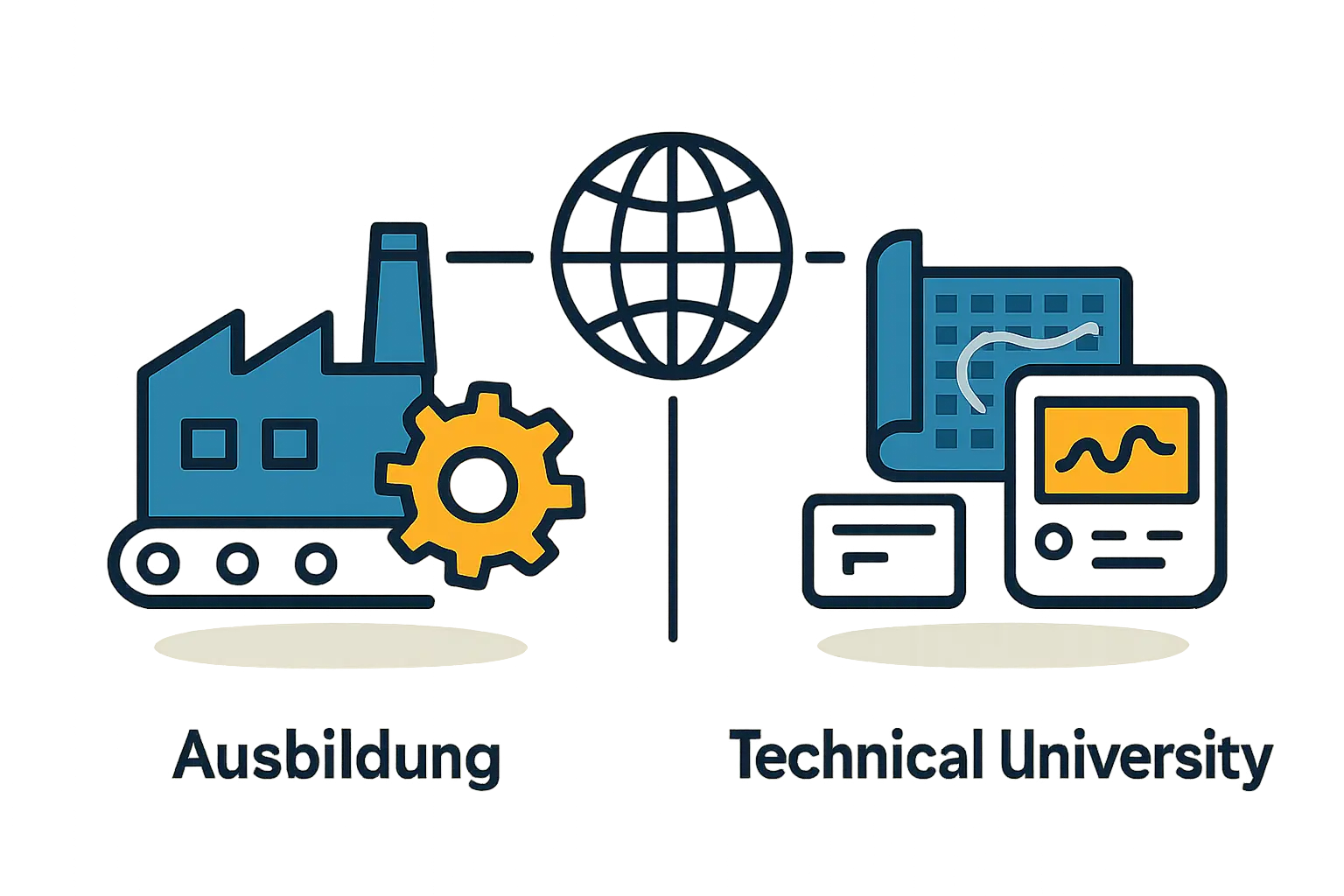
The Role of German Technical Universities (TU and FH)
Beyond the vocational level, Germany’s higher education system is also well-suited to supporting industry. Investors should understand the distinction between two primary types of technical universities:
-
Technische Universität (TU): These are traditional research universities focused on theoretical knowledge and fundamental scientific principles. Graduates from TUs are exceptionally well-suited for roles in research and development (R&D), materials science, and developing next-generation solar cell technologies. A TU engineering graduate will have a deep background in physics, chemistry, and advanced mathematics.
-
Fachhochschule (FH) / University of Applied Sciences: An FH focuses on practical application. Its curriculum is designed in close cooperation with industry partners, and a mandatory practical semester (‘Praxissemester’) is a core part of every degree program. Graduates from an FH are ideal for roles in process engineering, quality management, and production supervision. They are trained to solve real-world industrial problems and optimize existing manufacturing processes.
For a new solar factory, a balanced team of graduates from both institutions is highly effective. FH engineers are ideal for optimizing the day-to-day operations of the production line, while TU engineers can drive long-term product improvements and innovation.

Practical Strategies for Recruitment
Accessing this talent pool requires proactive engagement. Simply posting a job advertisement is not enough; a more strategic approach is needed to connect with these institutions.
Partnering with Vocational Schools (‘Berufsschule’)
Establishing relationships with local vocational schools is a crucial first step. Companies can offer to host the practical training component of an ‘Ausbildung’. This allows a business to train its future employees according to its specific needs and corporate culture. This approach is a long-term investment in building a loyal, skilled workforce. Experience from turnkey projects, such as those managed by J.v.G. Technology GmbH, shows that companies participating in the ‘Ausbildung’ system often report higher employee retention and stronger technical teams.
Collaborating with Universities for Internships and Theses
Both TUs and FHs require students to complete internships and a final thesis project, often with a company. By offering these positions, a solar manufacturer can:
- Evaluate potential future employees in a real-world work environment.
- Benefit from fresh perspectives on specific technical challenges.
- Build a reputation as an attractive employer within the academic community.
A student who completes a successful internship or thesis is a prime candidate for a full-time position upon graduation.
Attending Local Career Fairs (‘Karrieremessen’)
Universities and chambers of commerce regularly host career fairs. These events provide an efficient platform to present the company to a large number of students and graduates, explain the opportunities in the solar industry, and conduct initial screening interviews.

The Business Advantage: Why This System Creates Value
For an international investor, leveraging Germany’s educational infrastructure offers several clear business advantages:
- Reduced Training Costs: Graduates arrive with a high level of job-ready skills, significantly lowering the company’s initial training burden.
- High-Quality Standards: The standardized curriculum and rigorous examinations of the ‘Ausbildung’ and university systems ensure a high standard of competence.
- Innovation Pipeline: Close ties with universities create a natural channel for technology transfer and innovation, keeping the manufacturing process competitive.
- Workforce Stability: The system fosters a culture of professional pride and company loyalty, which can lead to lower employee turnover.
Frequently Asked Questions (FAQ)
-
What is the main difference between an ‘Ausbildung’ and a standard internship?
An ‘Ausbildung’ is a formal, multi-year employment and education contract that leads to a nationally recognized qualification. An internship is typically a short-term work experience placement without a formal educational component or standardized qualification. -
Are German vocational and academic qualifications recognized internationally?
Yes, German engineering degrees (Dipl.-Ing., Bachelor, Master) and master craftsman (‘Meister’) qualifications are highly respected and recognized globally for their quality and rigor. -
What are the typical salary expectations for graduates?
During an ‘Ausbildung’, trainees receive a modest but regulated monthly training allowance. Upon graduation, a skilled technician like a ‘Mechatroniker’ can expect a competitive starting salary. University engineering graduates command higher starting salaries, in line with international standards for engineering professionals. -
Is knowledge of the German language a requirement for employees?
While many engineers have a good command of English, the language on the factory floor and in vocational schools is predominantly German. For long-term operational success and team integration, encouraging or requiring German language proficiency is advisable for all technical staff.
Conclusion and Next Steps
Establishing a solar manufacturing facility is a complex undertaking where the quality of the workforce is as critical as the quality of the machinery. Germany’s integrated system of technical education offers a powerful, structural advantage for any investor who chooses to build there.
By understanding and proactively engaging with the ‘Ausbildung’ system and technical universities, a new enterprise can build a world-class team from the ground up. This ensures the technical excellence and operational efficiency needed to succeed in the competitive global solar market.
To plan effectively, your next step is to explore the specific labor and skill requirements for your planned production capacity. Detailed guides and business plan frameworks can provide deeper insights into structuring a team for a 20 MW, 50 MW, or larger facility.


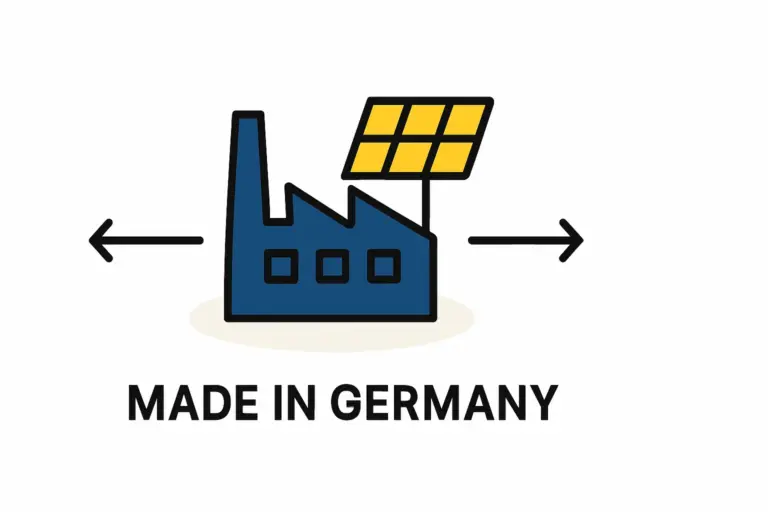
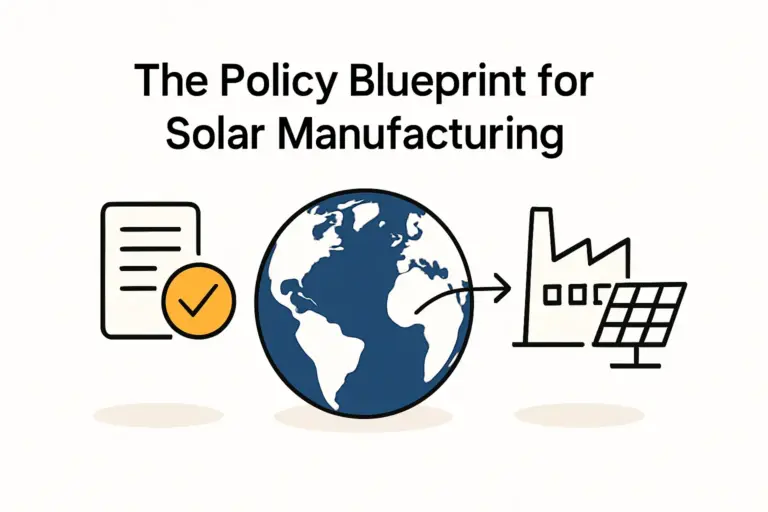
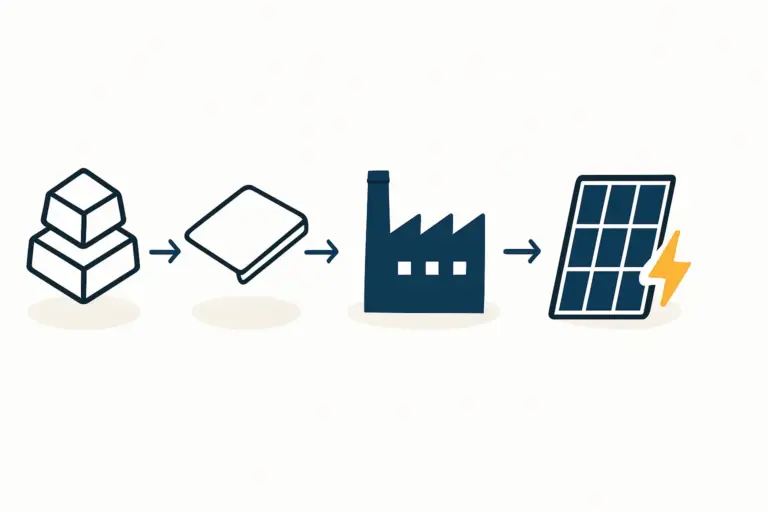
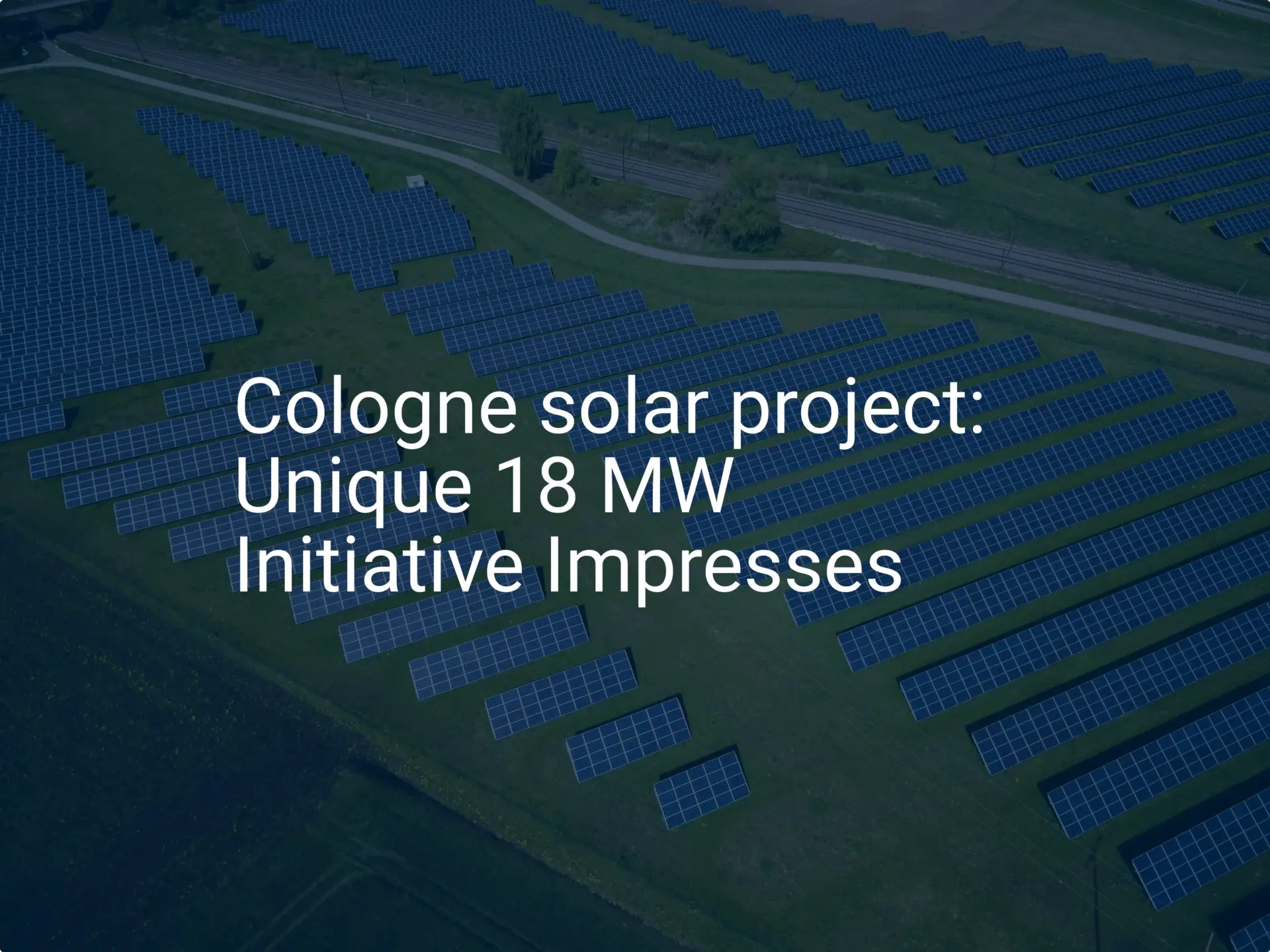

I am passionate about studying solar energy and building a profession in this field. I have studied some of the basic topics in solar with Solar Energy International, including a few on scholarship. However, these courses have been mainly theoretical without practical components. I am therefore seeking opportunities for the hands-on, practical aspect of solar training, and I would be grateful if you could assist me. Thank you.